In today’s digital age, high school students are increasingly exposed to the online world, where they face numerous challenges and opportunities. As technology continues to shape their lives, it’s essential to equip them with the knowledge and skills to navigate the digital landscape safely and responsibly. Access to digital content is only one click away with the advent of social media such as Facebook, Instagram, TikTok, etc. Wiki Advocates Philippines recently conducted a training program on Digital Wellbeing Essentials for high school students in Juan F. Trivino Memorial High School, focusing on the needs and benefits of digital literacy. Volunteers that were present are Bianca Brazal, Trisha Mae Bigcas, Lawrence Regidor, Eduardo B. Pesino, Jr. and Angelica Mirras, supported by the members of Shells and Stones, the school publication team.
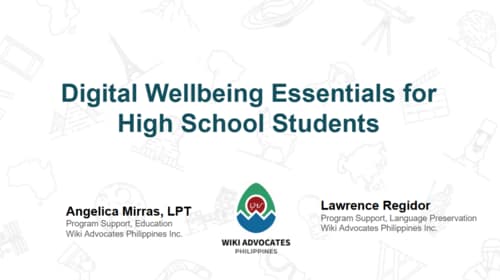
The Need for Digital Wellbeing Training
High school students are vulnerable to online risks, such as cyberbullying, online harassment, and digital addiction. Without proper guidance, they may struggle to manage their online presence, leading to negative impacts on their mental health, relationships, and academic performance. Digital well-being training addresses these concerns by providing students with the tools and strategies to maintain a healthy online presence. Angelica Mirras shared about misinformation, disinformation, and cyberbullying, and Lawrence Regidor discussed staying safe online and achieving digital wellness. The link for the presentation slide can be accessed here.
Based on the pre-evaluation form most of the participants own a gadget and are admittedly online users.
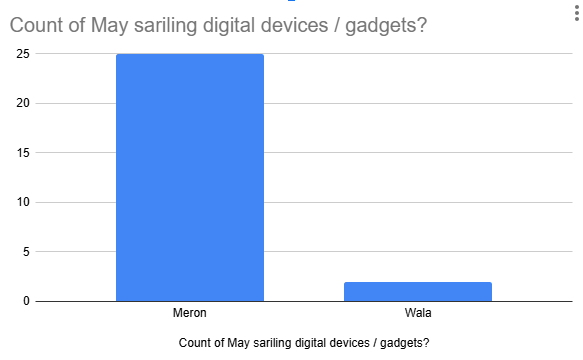
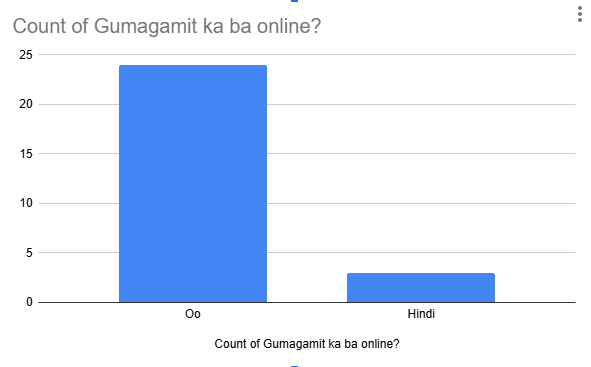
Benefits of Digital Wellbeing Training
The training program covered essential topics, including online safety, digital citizenship, and responsible social media use. By participating in the program, students gained:
- Improved online safety awareness: They learned how to protect themselves from online threats and maintain their digital security.
- Enhanced digital citizenship: They developed an understanding of their online responsibilities and the importance of respectful online interactions.
- Better time management: They acquired strategies to manage their screen time and prioritize their well-being.
- Increased self-awareness: They reflected on their online behaviors and developed a more mindful approach to digital technology.
Looking at the pre-evaluation result, participants have disagreed that constant online activity has positive impacts on their everyday life. Upon learning how to responsibly use their time online, most of the participants agreed that they can still benefit being online without jeopardizing their studies.
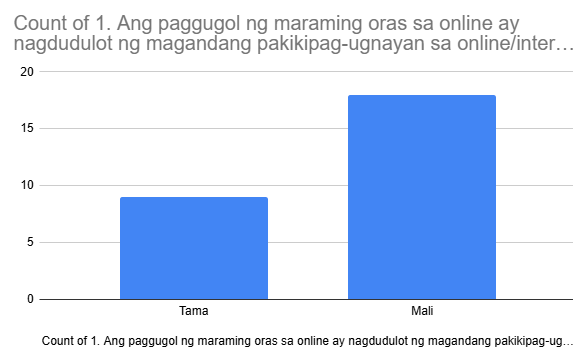
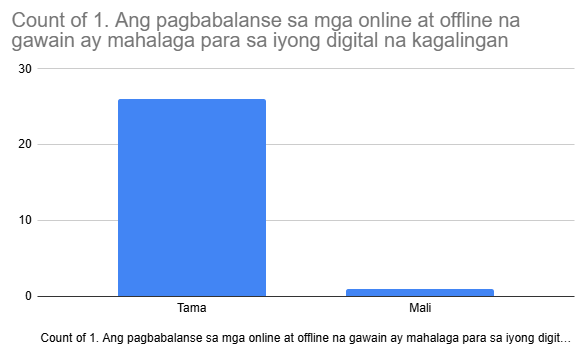
It is also important to note that before the training, most participants are not aware that online privacy matters a lot for their safety. At the post-test result, we observed that participants are now cautious with what information they made available online.
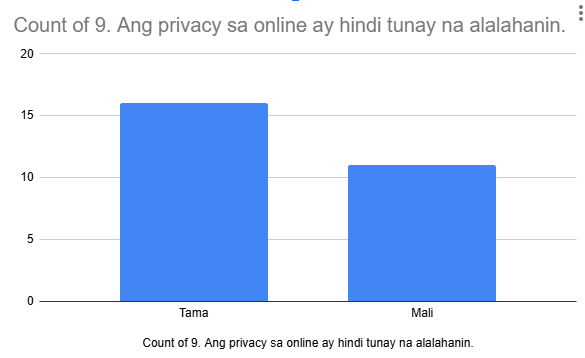
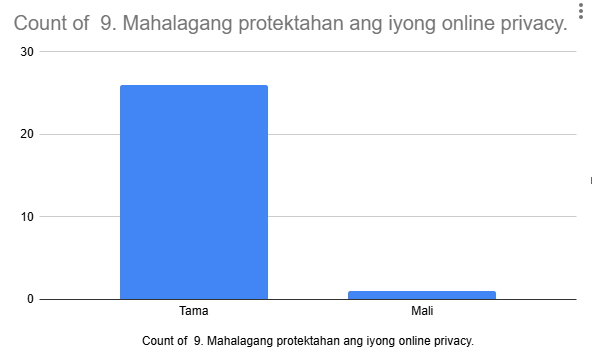
The Role of Wikimedians
We in the Wiki Advocates Philippines, as Wikimedians, play a vital role in promoting digital well-being and literacy among young people. As advocates for free knowledge and online safety, we bring expertise and passion to initiatives like the Digital Wellbeing Essentials training program. By sharing our knowledge and experience, Wikimedians help empower students to navigate the digital world confidently and responsibly, especially for the younger generation. This initiative not only enhances their digital literacy but also promotes a culture of responsibility and respect in the online community.
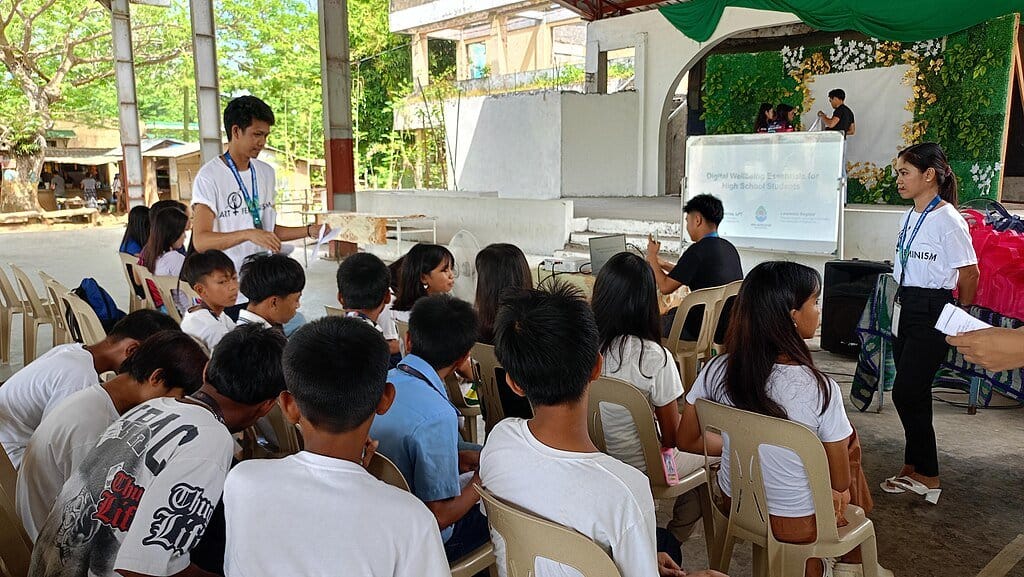
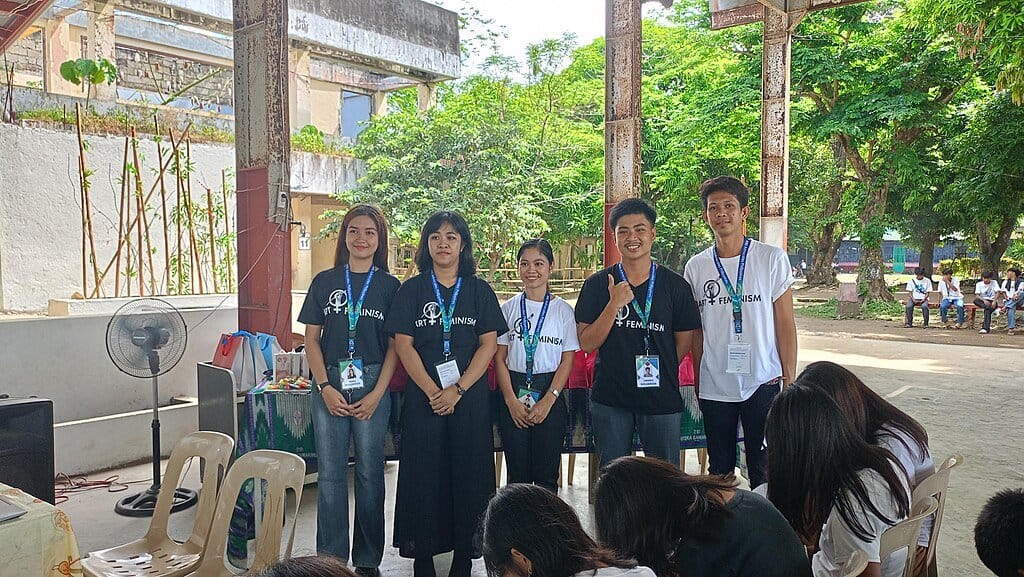
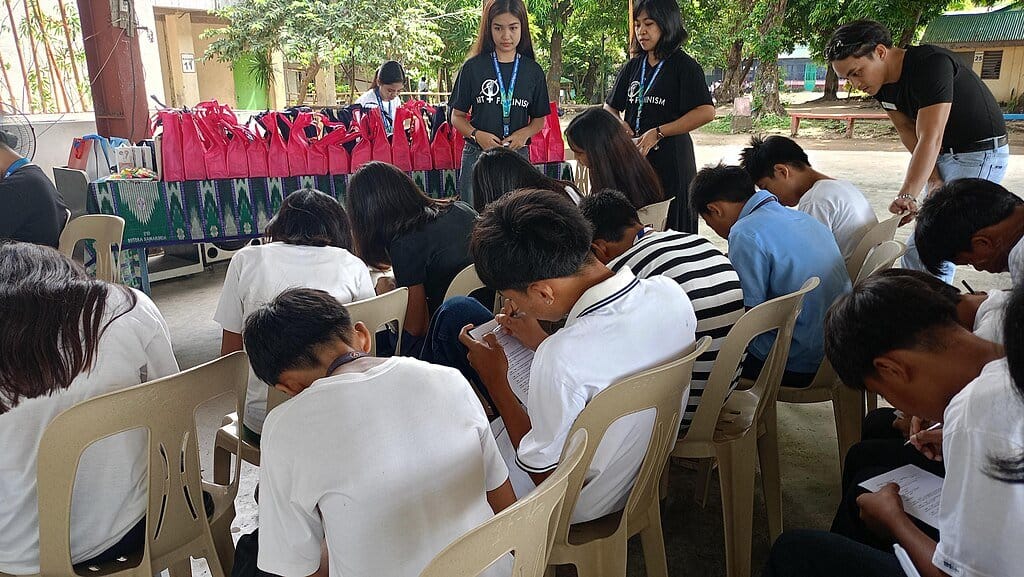
Giving Back to the Community
As a token of appreciation and support, Wiki Advocates Philippines distributed hygiene kits to the students. This gesture acknowledges the importance of overall well-being, including physical and mental health.
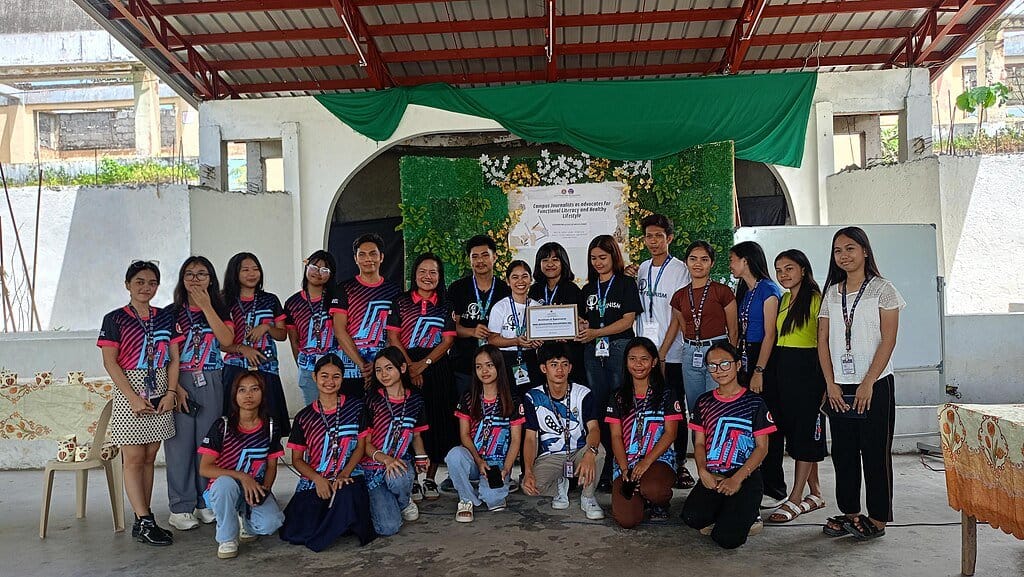
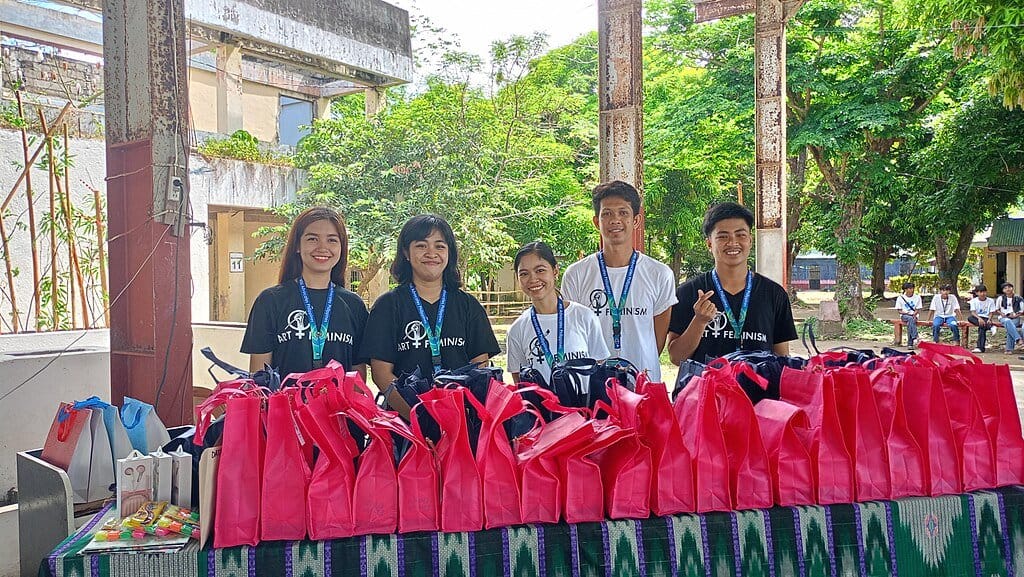
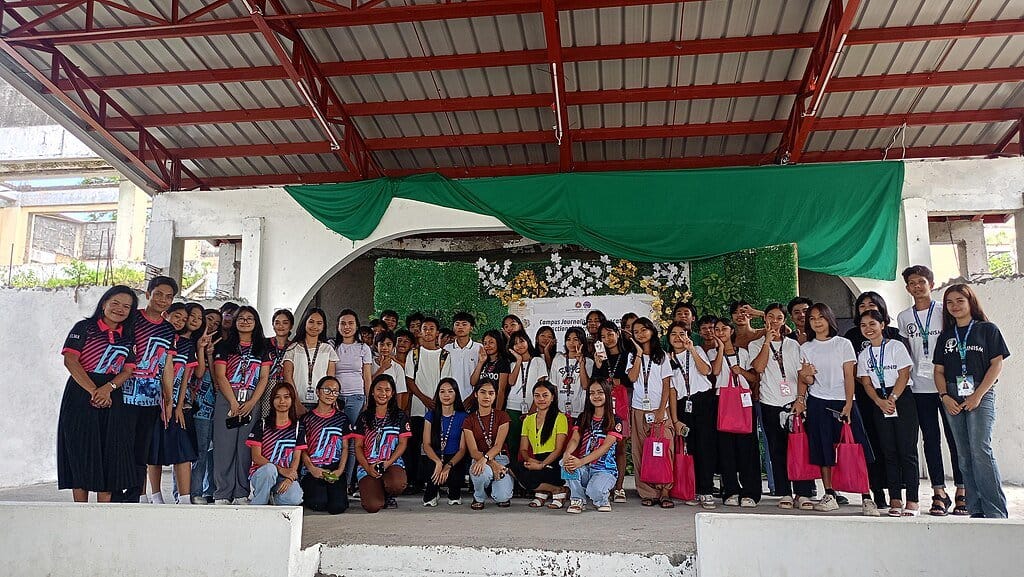
Content Contributors:
Imelda Brazal, Bianca Brazal, Trisha Mae Bigcas, Lawrence Regidor, Eduardo B. Pesino, Jr. and Angelica Mirras
